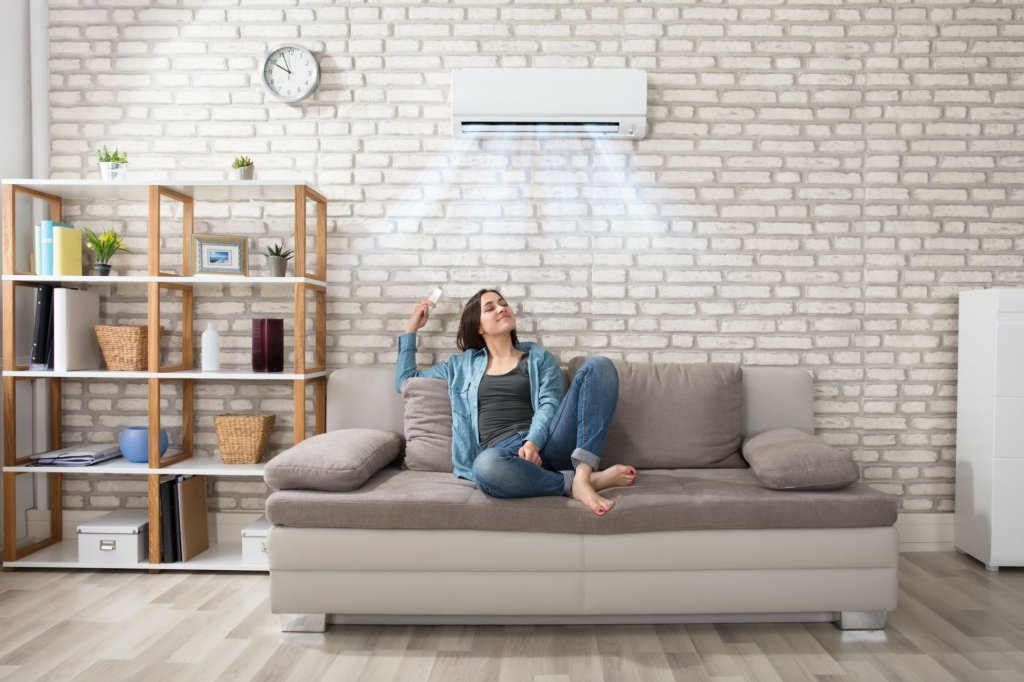Summertime can be unbearable without the comfort of a good air conditioner. A reliable air conditioning system will keep your home at a comfortable temperature during hot and humid weather. With different types and models available, choosing the right one can be overwhelming.
In this article, we’ll cover everything you need to know to make an informed decision and find the best air conditioner for your needs.
Understanding Air Conditioner Efficiency
When buying an air conditioner, the seasonal energy efficiency ratio (SEER) should be one of the most crucial factors to consider. SEER measures how efficiently the unit can cool a room and how much energy it consumes in the process. The higher the SEER rating, the more energy-efficient the air conditioner is, which translates to significant cost savings over time.
Look for units with a SEER rating of 14 or higher for maximum efficiency.
Key Features to Look
- Filter Type and Quality: A good air filter is essential for indoor air quality. Look for a filter with a high MERV rating, which measures how well it filters indoor air. A good filter will trap allergens, dust, and other contaminants and help people with allergies or asthma breathe easier.
- Smart Connectivity: An air conditioner with smart connectivity is a plus. It allows you to control your air conditioner remotely via a smartphone app or even a voice assistant. This feature makes it easy to turn your air conditioner on or off or adjust its settings even when you’re not home.
- Noise Level: The noise level of an air conditioner is a crucial factor to consider. Look for units with a decibel rating of 50 or lower for quiet operation and optimal comfort. If possible, ask for a demonstration before purchasing.
- Energy-Saving Modes: Sleep mode, programmable timers, and other energy-saving modes can help reduce energy consumption and lower your electricity bill. Sleep mode reduces the unit’s cooling capacity during a set time, while programmable timers allow you to set schedules for your air conditioner to turn on and off at specific times.
- Cooling Capacity: Matching the air conditioner’s cooling capacity (BTU) with the size of the room is essential. A unit with insufficient cooling power won’t cool your room effectively, while an oversized unit will needlessly waste energy. You can determine the appropriate BTU for your room by measuring the space’s square footage and checking the manufacturer’s recommendations.
Maintenance and Longevity
Proper maintenance is key to keeping your air conditioner working efficiently and prolonging its lifespan:
- Regular Cleaning: Frequent cleaning of the air filter and other components of the AC unit can significantly enhance its longevity. Dust and debris can hinder its functionality and lead to higher energy consumption.
- Scheduled Maintenance: Scheduling routine maintenance checks with a professional can help identify minor issues before they escalate, ensuring the unit continues to operate efficiently and prolonging its life.
- Quality of the Unit: The durability of an air conditioner heavily relies on its quality. Opt for units from reputable brands that are known for their reliability and durability. They might be more expensive upfront, but they usually last longer and perform better.
- Proper Installation: Correct installation is crucial for an air conditioner’s lifespan. Improper installation can lead to frequent breakdowns and reduced efficiency. Always have your AC unit installed by a certified professional.
- Usage Habits: Your usage habits can also influence the lifespan of your air conditioner. For instance, using it at maximum capacity continuously can wear it out faster. Use energy-saving modes and adjust the settings according to the weather to extend its life.
- Warranty: Lastly, always check the warranty when buying an air conditioner. A longer warranty can provide peace of mind, as it typically indicates the manufacturer’s confidence in the product’s durability.
Conclusion
Choosing the best air conditioner for your needs requires research and due diligence. Understanding SEER ratings, knowing which features to look for, and matching the cooling capacity with the room size are essential factors to consider. A good air filter, smart connectivity, energy-saving modes, low noise levels, and proper maintenance are additional features that contribute to a comfortable and efficient air conditioning system.
Start with these considerations to make the most informed decision when selecting an air conditioner for your home.

